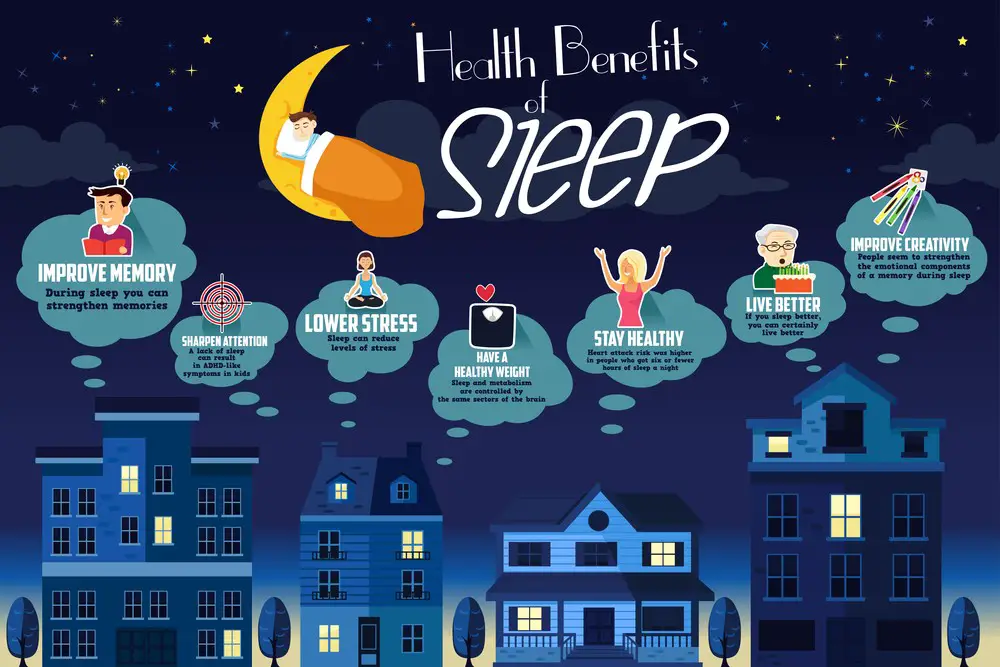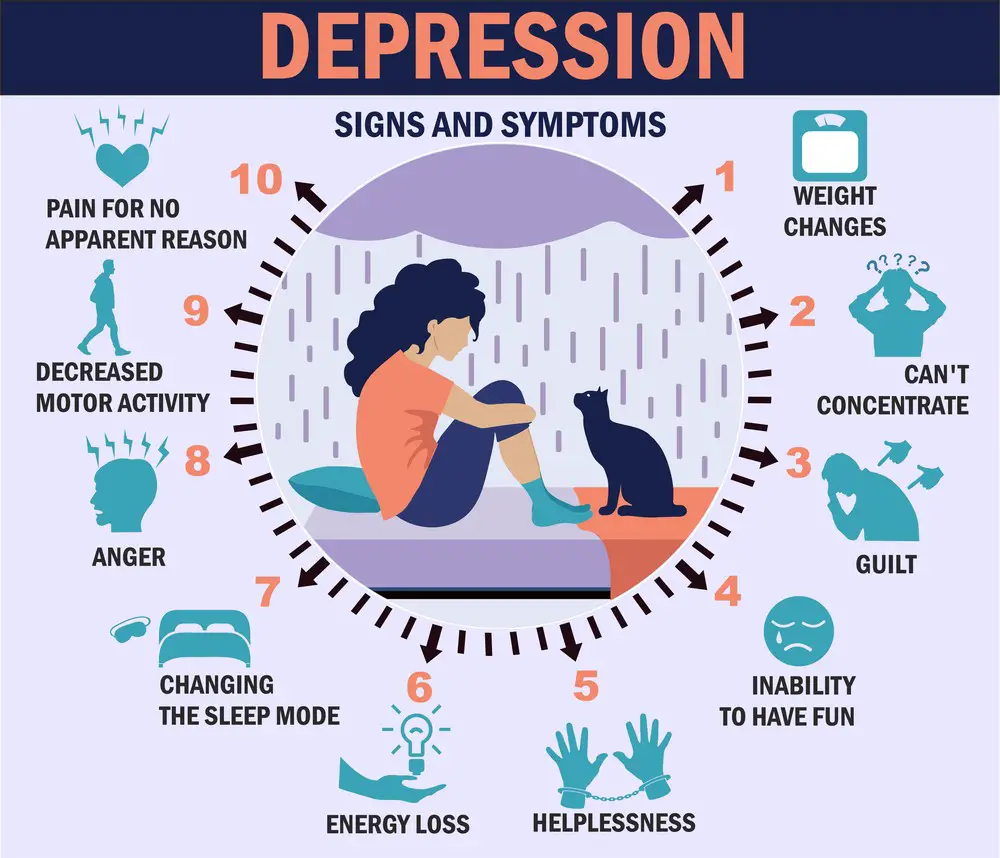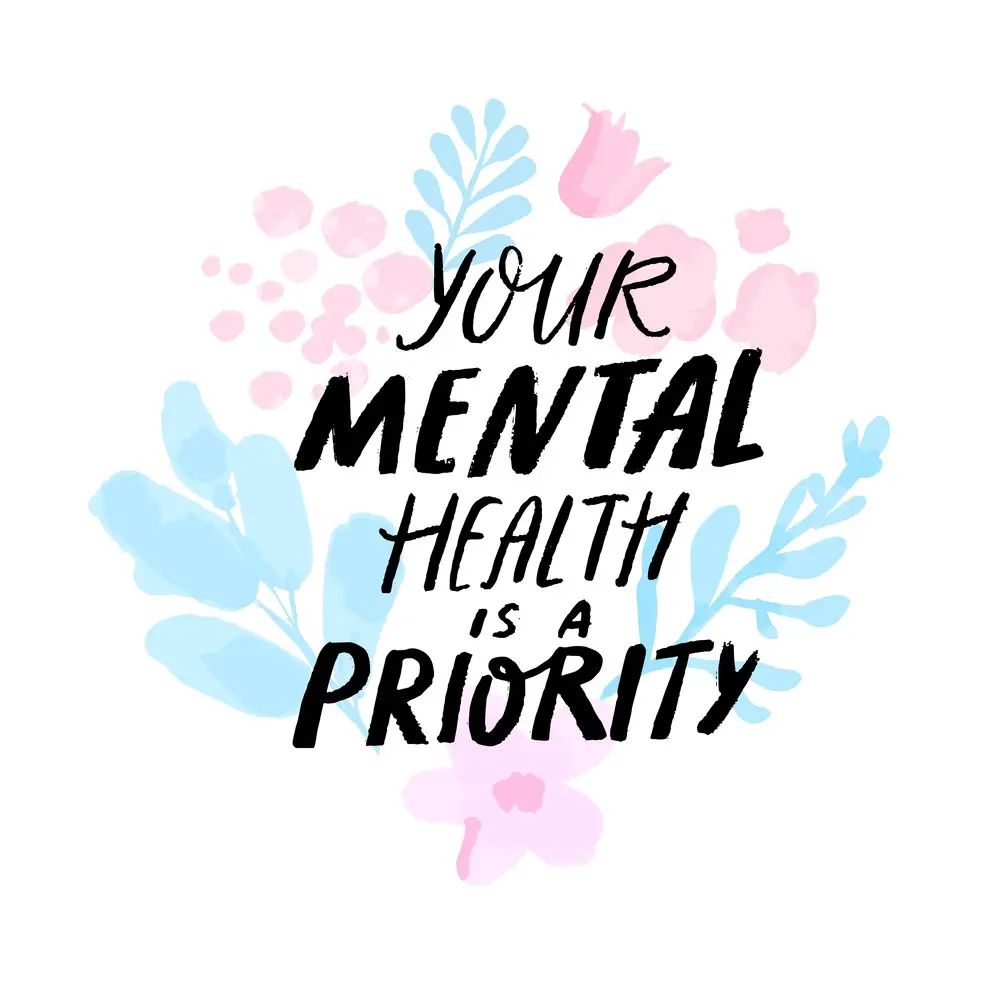As a BetterHelp affiliate, we receive compensation from BetterHelp if you purchase products or services through the links provided
Experiencing a loss of appetite after giving birth is a common concern for many new mothers. During the postpartum period, your body is going through significant changes as it adjusts to the new demands from childbirth. It’s not unusual for your appetite to fluctuate during this time, and it’s important to understand why this occurs and how to manage it effectively.
Understanding postpartum loss of appetite involves recognizing various factors contributing to this shift. New moms need to be aware of common symptoms to look out for and the link between postpartum depression and appetite loss. Breastfeeding, nutrition, exercise, and sleep can regulate your appetite. By staying informed and consulting healthcare professionals when needed, you can help manage your appetite and ensure a healthy postpartum recovery for you and your baby.
Key Takeaways
- Postpartum loss of appetite is common and may result from physical and emotional changes.
- Understanding the link between postpartum depression and appetite loss can help address the issue effectively.
- Proper nutrition, exercise, sleep, and support systems contribute to healthy postpartum recovery and appetite management.
 Understanding Postpartum Loss of Appetite
Understanding Postpartum Loss of Appetite
Experiencing a loss of appetite after giving birth is quite common, so don’t be alarmed if you find that food doesn’t seem as appealing as it once did. During postpartum, your body undergoes significant hormonal changes, affecting your desire to eat. The sharp drop in progesterone and estrogen levels plays a role in decreasing your appetite.
Remember that this is just a phase, and as your hormone levels gradually normalize over 2-3 months, your appetite should also return. During this recovery period, it’s essential to maintain a balanced diet for your health and your baby’s well-being.
Here are some tips to help you cope with postpartum loss of appetite:
- Eat small, frequent meals: Rather than struggling with three large meals a day, opt for smaller portions and eat more frequently. This will prevent you from feeling overwhelmed and ensure adequate nourishment.
- Choose nutrient-dense foods: Prioritize consuming foods that pack the most nutrients per bite, such as leafy greens, lean proteins, whole grains, and healthy fats. This way, even with low appetite, you’re still fueling your body with essential nutrients.
- Stay hydrated: Sometimes, dehydration can lead to a reduced appetite. Ensure to drink plenty of water, herbal teas, or nutrient-rich beverages like smoothies and soups throughout the day.
- Seek support: Reach out to friends, family, or a healthcare professional for guidance and encouragement. They can help you find ways to manage your postpartum appetite and ensure both you and your baby are receiving proper care.
As you navigate your postpartum journey, it’s essential to remember that everyone’s experience is unique. Your appetite may return earlier or later than others, but remain patient and continue focusing on providing your body and your baby with adequate nutrition.
 Symptoms to Look Out For
Symptoms to Look Out For
Loss of appetite is a common postpartum symptom, but there are other symptoms you should be aware of, as they could signal something more serious. Here’s what to look out for:
- Irritability: Feeling irritable or easily frustrated can be normal when adjusting to life with a newborn. However, if your irritability is persistent and doesn’t improve with rest or support, it could indicate a deeper issue, such as postpartum depression.
- Insomnia: Having difficulty sleeping is common in the early weeks of postpartum due to the demands of a newborn. But it’s worth mentioning to your healthcare provider if you cannot fall asleep even when your baby sleeps or if you’re struggling with severe restlessness and sleeplessness.
- Feeling overwhelmed: It’s natural sometimes to feel overwhelmed with caring for a new baby. Suppose this sensation becomes constant, and you have trouble managing day-to-day tasks. In that case, it may be a sign that you need additional support or are dealing with something like postpartum depression or anxiety.
- Difficulty sleeping: While it’s normal for your sleep schedule to be disrupted after having a baby, watch out for ongoing issues with sleep. Talk to your healthcare provider about potential solutions if you experience extreme sleep disturbance, such as excessive nightmares or waking up frequently at night.
- Frequent crying: It’s okay to feel emotional after pregnancy and childbirth; many new parents experience “baby blues”. But it could signify a more serious issue if you cry frequently or for no apparent reason.
While these symptoms can be common and expected during the postpartum period, it’s always important to monitor yourself and seek professional help if you’re concerned. You know your body and emotions best, so don’t hesitate to contact your healthcare provider if you need to. Remember, caring for yourself is as important as caring for your new baby.
 The Link Between Postpartum Depression and Appetite Loss
The Link Between Postpartum Depression and Appetite Loss
After giving birth, it’s common to experience fluctuations in your mood and appetite. These changes can sometimes lead to more serious issues, such as postpartum depression. Understanding the link between postpartum depression and appetite loss can help you manage your mental health during this important time.
Postpartum depression (PPD) affects about 1 in 7 new parents and is more severe than baby blues. Some symptoms of postpartum depression include:
- Depressed mood
- Loss of energy and motivation
- Changes in appetite or not eating
- Thoughts of harming yourself or your baby
One factor contributing to appetite loss in the postpartum period is a sharp drop in hormone levels, such as progesterone and estrogen. This hormonal imbalance typically normalizes within 2-3 months, and your appetite should improve.
In addition to hormonal changes, your mental health plays a significant role in appetite loss. Anxiety and depression can cause a decrease in your desire to eat as your body and mind cope with the stress of adjusting to parenthood. Taking care of your emotional well-being is essential to maintaining a healthy appetite postpartum.
One potential approach to help reduce the incidence of postpartum depression and its impact on appetite is ensuring a balanced diet. Emphasizing consuming fruits, vegetables, fish, grains, legumes, and herbs can positively impact your mental health, although more research is needed to confirm this link.
Remember, it’s important to be aware of the signs of postpartum depression and its effect on your appetite. Discuss any concerns with your healthcare provider to ensure you receive the appropriate support and resources for your mental health postpartum period.
Effect of Breastfeeding on Appetite
Breastfeeding can have an impact on your appetite after giving birth. As you nurse your baby, your body works hard to produce milk to meet your baby’s needs. This process requires a higher caloric intake, which may lead to an increase in your appetite. However, changes in hormone levels postpartum may also cause a decrease in appetite.
During breastfeeding, your body may require 300 to 500 calories daily to maintain your milk supply. For some women, tender breasts can contribute to a diminished appetite, as the discomfort might make them less inclined to eat. It’s important to listen to your body’s hunger cues and nourish it with nutrient-dense foods to ensure you get enough energy to support breastfeeding.
Here are a few tips to manage your appetite and caloric intake while breastfeeding:
- Eat smaller, more frequent meals throughout the day.
- Stay hydrated by drinking water or other non-caffeinated beverages.
- Choose nutrient-dense foods like lean proteins, whole grains, fruits, and vegetables.
- Consult with your healthcare provider about supplements that might support your nutritional needs.
It’s important to remember that appetite can be influenced by various factors, including hormonal changes, stress, sleep deprivation, and adapting to your new routine as a mom. Allowing your body to gradually normalize after giving birth is crucial. Typically, hormonal imbalances should stabilize in about 2-3 months, which can help improve appetite.
While breastfeeding, paying attention to your body, nourishing it with proper nutrients, and seeking support from healthcare professionals as needed are essential. By providing optimal care for yourself, you can better support your baby’s growth and create an overall positive breastfeeding experience.
Roles of Proper Nutrition and Exercise
Eating well and staying active are crucial in the postpartum period. Not only can they help in managing your weight loss, but they also contribute to your overall well-being. Here are some key aspects of proper nutrition and exercise that can help you deal with the postpartum loss of appetite.
A balanced diet is essential to give your body the energy and nutrients it needs. Aim to consume food from diverse sources, such as:
- Protein: Include lean meats, fish, dairy, eggs, and plant-based proteins like legumes and tofu. Protein-rich foods help in muscle repair and growth after giving birth.
- Fruits and vegetables: These provide essential vitamins, minerals, and fibers. Try to eat a rainbow of fruits and veggies to ensure you get a wide range of nutrients.
- Carbohydrates: Opt for complex carbs like whole grains, brown rice, and whole-wheat pasta, which give you sustained energy.
- Fats: Choose healthy fats like avocados, nuts, and seeds. These fats support cell growth and hormone regulation.
- Water intake: Staying hydrated is essential, especially if you’re breastfeeding. Drink enough water daily to maintain proper body functions and help manage weight.
Limiting your added sugars and processed foods intake might cause energy crashes and interfere with weight loss efforts.
Regular exercise is another crucial aspect of your postpartum journey. It supports weight loss, lifts your mood, and relieves stress. Keep these tips in mind while exercising:
- Take it slow and listen to your body. Start with gentle activities like walking, pelvic tilts, or stretching. Gradually increase intensity and duration as your body allows.
- Mix cardio and strength training exercises. Cardio workouts like brisk walking and swimming help burn calories and strengthen your heart, while strength training helps rebuild muscle mass lost during pregnancy.
- Don’t forget about core exercises. Strengthening your abdominal muscles is important for regaining stability and improving posture after birth.
- Make it enjoyable. Incorporating activities you enjoy increases the chances of sticking with your exercise routine.
Try to spread your meals throughout the day, eating smaller, more frequent meals to avoid feeling overly full and help regulate your metabolism. Keep healthy food options available, and focus on listening to your body’s hunger cues rather than forcing yourself to eat.
In summary, proper nutrition and regular exercise are vital components in managing postpartum loss of appetite and promoting a healthy lifestyle. These tips can support your recovery and overall well-being during this important journey.

Impacts of Sleep and Energy Levels
Experiencing a loss of appetite postpartum is not uncommon, and it can significantly impact your energy levels and sleep quality. When you’re already tired from caring for your new baby, a lack of proper nutrition can leave you feeling even more exhausted. Here are a few points to consider regarding how these factors might intertwine:
- Hormonal changes: In the postpartum period, estrogen and progesterone levels drop sharply. This decrease can influence your appetite, making you less interested in eating. As your hormones begin to balance out in 2-3 months, you might notice an improvement in your appetite.
- Sleep deprivation: Caring for a newborn often means sleepless nights and insufficient sleep contributes to postpartum fatigue. Lack of sleep can also worsen postpartum depression symptoms, including difficulty regulating appetite. Aim for regular naps whenever possible, and consider taking turns with your partner to handle nighttime feedings.
- Physical activity: Engaging in light-to-vigorous physical activity during the postpartum period can help combat sleep disturbances. Regular exercise may also help improve your energy levels, making it easier to maintain a healthy appetite.
- Postpartum depression: If you’re experiencing feelings of sadness, worthlessness, hopelessness, or guilt for more than two weeks, it’s essential to discuss them with your healthcare provider. Postpartum depression can result in changes in appetite or difficulty eating, sleep disturbances, and fatigue. Early intervention can help improve your mental health and overall well-being.
To maintain your energy levels and improve your sleep quality during this challenging phase, focus on nourishing your body with small, frequent meals throughout the day, taking naps when possible, and incorporating gentle exercise into your routine. By addressing the underlying causes of your postpartum loss of appetite, you can work toward a healthier, more balanced emotional and physical state.
Emotional Changes and Mood Swings
After giving birth, you may experience emotional changes and mood swings due to the fluctuating hormones in your body. It’s quite common to feel a wide range of emotions, including fear, guilt, and even irrational fears during this time. These feelings can be triggered by stressful events or the pressure to be a perfect parent. Such emotions might also be linked to your postpartum loss of appetite.
One contributing factor to these emotional changes is the sudden drop in progesterone and estrogen levels after delivery. This hormonal imbalance can exacerbate mood swings and even cause panic attacks. Acknowledging these feelings and remembering that they’re a normal part of your postpartum experience is crucial.
To better manage your emotions and mood swings, try the following strategies:
- Share your feelings with a trusted friend or family member, as talking about your emotions can help you process them.
- Allow yourself time to rest and recover, and don’t be too hard on yourself for not meeting unrealistic expectations.
- Seek professional help if your mood swings become too severe or negatively impact your life and relationship with your baby.
- Engage in stress-relieving activities like light exercise, meditation, or deep breathing to help you cope with your emotions.
- Maintain a healthy diet and stay hydrated, as proper nutrition can positively impact your mental health.
Remember, experiencing emotional changes and mood swings after giving birth is normal, and it’s essential to give yourself patience and understanding during this time. Reach out for help if you’re feeling overwhelmed, and don’t hesitate to communicate your concerns with your healthcare provider if your emotions impact your appetite or bonding with your baby.
 Consulting Healthcare Professionals
Consulting Healthcare Professionals
When to Seek Medical Attention
It’s normal to experience a loss of appetite following childbirth; however, there are some instances when you should consult a healthcare provider. If your decreased appetite persists for more than 2-3 months, it might be time to seek medical advice. Additionally, if you notice significant weight loss, difficulty breastfeeding, or any other concerns about your overall health, don’t hesitate to contact a healthcare professional.
The Role of a Gynecologist
A gynecologist plays an essential part in your postpartum care. They can help monitor your hormonal levels and advise you on steps to manage your appetite. A gynecologist or obstetrician can also address concerns about your post-pregnancy body weight.
Suppose you’re struggling with returning to your pre-pregnancy weight or experiencing weight loss due to reduced appetite. In that case, your gynecologist can recommend healthy ways to manage your diet, or they may refer you to a nutrition specialist for a more tailored plan.
The Contribution of a Mental Health Provider
Sometimes, your mental health can impact your appetite during the postpartum period. Emotional factors such as stress, anxiety, and postpartum depression may play a role in decreased appetite. A mental health professional can provide valuable support and guidance in such cases.
Your mental health provider may suggest coping mechanisms or relaxation techniques to help reduce stress. They can also work with you to develop strategies for improving your overall mental well-being, which can help boost your appetite in the postpartum period.
Remember, you don’t have to navigate this challenging time alone. Reaching out to healthcare providers like gynecologists and mental health professionals can help manage your postpartum loss of appetite and ensure a healthier recovery.
 Role of Support System in Postpartum Recovery
Role of Support System in Postpartum Recovery
A strong support system is crucial in postpartum recovery and helps new parents adjust to their new life. It’s essential to create an environment that fosters emotional well-being, bonding, and assistance for both the parent and baby.
Emotional Support: During the postpartum period, you may experience hormone fluctuations affecting your appetite and emotions. Connecting with friends, family, and other new parents can provide a sense of understanding and comfort, allowing you to express your feelings openly, which is vital for your emotional health.
Bonding: Establishing a bond with the baby can be challenging for some new parents, especially during the early weeks. Support from your loved ones can help you learn the intricacies of infant care, allowing you to develop an attachment and understand your baby’s needs better. This emotional bond contributes to your and your child’s overall well-being.
Practical Assistance: Juggling the demands of a newborn and your recovery can be physically and mentally exhausting. Having a reliable support network to help with tasks like cooking, cleaning, or infant care can alleviate some of the ongoing stress, allowing you to focus on your recovery and bonding with the baby.
Educational Resources: Your support system can also include people with knowledge and experience in various parenting aspects. Contact healthcare professionals, lactation consultants, or support groups for guidance on managing your physical recovery, sleep, nutrition, and postpartum feelings.
Remember, the support you receive during the postpartum period significantly affects your overall recovery. Don’t hesitate to ask for help and use the resources available to you. Developing a solid support network early on can make a difference in your emotional well-being, bonding experience, and ability to navigate the challenges of being a new parent.
Understanding Postpartum Weight Management
Managing your weight postpartum can be a challenge. Many factors contribute to the difficulty in losing weight after childbirth, including hormonal changes, stress, and a lack of appetite. It is essential to find a balance between healthy weight loss and giving your body the time it needs to recover.
Postpartum weight loss largely depends on the individual and the weight gained during pregnancy. Most women lose about half their baby weight by six weeks postpartum; the rest usually comes off over the next several months. It’s crucial not to rush the process or resort to unhealthy diet plans, as this can harm you and your baby if breastfeeding.
To achieve healthy postpartum weight management, consider the following:
- Follow a balanced diet: Incorporate a variety of fruits, vegetables, whole grains, lean protein, and healthy fats into your meals. This helps with weight loss and ensures you get all the necessary nutrients to support your recovery and your baby’s growth (if breastfeeding).
- Stay active: Engage in regular physical activity according to your doctor’s recommendations and your comfort level. This can range from gentle walks to vigorous exercise like swimming or dancing.
- If possible, Breastfeeding can help with postpartum weight loss, as it requires extra calories to produce milk. However, it’s essential to maintain a healthy diet for both your and your baby’s nutritional needs.
- Get support: Reach out to friends, family, or support groups for advice and encouragement during this time. Weight management can be a sensitive topic, but a support system can make a significant difference.
- Set realistic goals: Consider factors like hormonal changes and the demands of caring for a newborn. Setting achievable weight loss goals and being patient with yourself throughout the process is important.
Additionally, consider tracking your progress and discussing it with your healthcare provider. They can help you evaluate whether your weight management approach is working or any adjustments should be made. The Centers for Disease Control and Prevention (CDC) also provides resources and guidelines on healthy weight loss for postpartum women.
Remember, it’s essential to prioritize your well-being during this time. Give your body the time to heal, and focus on establishing a healthy lifestyle that includes balanced eating habits and regular physical activity. Postpartum weight management is a journey, and with the right approach, you can achieve your goals while ensuring you and your baby are well-cared for.
Crossing the Line: When It’s More Than Just “Baby Blues”
Sometimes, loss of appetite isn’t just a fleeting issue but a sign of deeper emotional challenges. Knowing when you’ve crossed from the realm of ‘normal new mom struggles’ into a territory that requires professional help can be a lifesaver.
Concerning Signs:
- Loss of appetite affecting your ability to care for your baby
- Experiencing guilt or feelings of worthlessness
- Unexplained irritability or anger
- Severe mood swings that disrupt daily life

The Healing Path: Signs Therapy May Be Beneficial
If you’ve noticed concerning signs, therapy could be a beneficial step towards healing. Therapy is a judgment-free zone where you can explore your thoughts and feelings and learn coping strategies.
When Therapy Might be Needed:</strong>
- You’ve noticed multiple red flags, and they’re not improving
- Friends and family express concern about your well-being
- You find it difficult to bond with your baby
The Road Ahead: Setting Goals and Tracking Progress
Once you’ve acknowledged the issues, it’s time to move forward. Setting goals and tracking your progress is essential for both your physical and mental well-being.
Signs of Progress:
- Gradual improvement in appetite
- Increased feelings of joy and emotional connection with your baby
- A more consistent sleep schedule
- Receiving positive feedback from healthcare providers
Goals to Aim for:
- Establish a balanced eating routine
- Achieve consistent sleep of at least 7 hours a night
- Build a support network, including regular check-ins with healthcare providers
Having these milestones and metrics in place can help you monitor how you’re doing, reassure you when you’re on the right track, and alert you if you need additional help. Life post-baby is a journey with ups and downs, but being vigilant about your health ensures a smoother ride for you and your little one!
Frequently Asked Questions

How long does loss of appetite last after childbirth?
Loss of appetite after childbirth can vary greatly from one person to another. For some, it might last just a few days, while others may experience it for weeks or months. It’s important to listen to your body’s signals and give yourself time to adjust to your new life as a parent.
Is it normal to lose appetite after pregnancy?
Yes, it is quite normal for new mothers to experience a loss of appetite after giving birth. This can be due to various factors, including hormonal changes, physical healing, and the emotional stress of caring for a newborn. If your appetite doesn’t return after a reasonable amount of time, or if you’re experiencing other concerning symptoms, it’s a good idea to consult a healthcare professional.
What can I consume if I don’t feel hungry?
Even if you don’t feel hungry, providing your body with the necessary nutrients to recover and care for your baby is essential. Focus on consuming nutrient-dense foods that are easy to digest, such as:
- Smoothies or protein shakes
- Soups or broths
- Lean proteins like chicken, fish, tofu, or beans
- Whole grains like brown rice, quinoa, or whole wheat bread
- Fresh fruits and vegetables
Remember to stay hydrated by drinking plenty of water, herbal tea, or low-sugar juices.
What causes appetite changes in new mothers?
Several factors can contribute to appetite changes in new mothers. These include:
- Hormonal shifts after childbirth
- Physical healing and recovery from pregnancy and delivery
- Sleep deprivation and fatigue
- Emotional stress from adjusting to your new role as a parent
How can I regain my appetite post-delivery?
To help regain your appetite after giving birth, try the following:
- Eat regular, smaller meals and snacks throughout the day
- Choose nutrient-dense, easy-to-digest foods
- Make mealtime enjoyable by eating with loved ones or watching a favorite show
- Stay well-hydrated by sipping on water, herbal tea, or other hydrating beverages
- Get adequate rest and ask for help when needed
- Consult your healthcare provider if appetite loss persists or worsens
Are there any remedies for postpartum appetite loss?
There are no specific remedies for postpartum appetite loss, as it usually resolves independently with time. However, focusing on self-care, staying hydrated, and providing your body with nutrient-dense foods can help support your recovery and address any loss of appetite. Contact a healthcare professional for advice and support if you’re concerned about losing your appetite.
 Walking Through Fire: My Personal Experience with BetterHelp ?
Walking Through Fire: My Personal Experience with BetterHelp ?
I’m Jacob Maslow, and I want to share my experience using BetterHelp. ? I think it’s crucial to emphasize that you’re not alone in this journey, no matter how isolated you feel. I’ve had my share of life-altering events. I survived 9-11 ?, working on the 101st floor and losing over a thousand coworkers. After that, I transitioned to remote work ? and became the primary caregiver to our kids ??? while my ex worked full-time, often night shifts. Even after separating, we maintained a close relationship with our kids, and they lived in two households. But everything changed dramatically ? over the past year when my ex completely removed me from the kids. I live alone in an empty 3-bedroom apartment, staring at two vacant bedrooms daily ?️. BetterHelp has been my go-to resource for coping with this ongoing nightmare.
Who Am I: A Glimpse Into Jacob Maslow’s Life and Struggles ?
I’m an affiliate of BetterHelp and highly recommend them; I’m using their services right now ?️. I also take Lexapro to manage my mental health ? and have been in therapy for a long time. The situation got even more complicated when my ex stopped cooperating with reunification therapy ? as soon as the therapist got the kids to agree to end the alienation against me. My ex exhibits typical narcissistic behavior—having affairs with community leaders ? and launching smear campaigns against them. As she ages and her beauty fades, her narcissism only intensifies ?.
Despite court orders for shared custody ?, she’s refused communication between me and our kids for the past year. This drastic change, from having a close relationship to absolutely none, has been catastrophic for my mental well-being ?. To cope, I take long walks daily to clear my mind ?.
Why I Write: My Mission to Help Others ?
I write articles like this on mental health and narcissism to extend a hand to those struggling with narcissistic partners and mental health issues ?. Believe me when I say this: you can get through it ?.
I also run a legal site to help others dealing with spouses who weaponize children instead of co-parenting and refuse to abide by court orders ?.
We all have our crosses to bear, but there’s a sort of comfort in shared struggle ?. Therapy, medication, or even long walks—whatever helps you get through the day, it’s worth doing ?. Always remember, you’re not navigating these dark waters alone ?.

- 7 Ideas to Help You Relax and Unwind on a Family Vacation - April 27, 2025
- How Having Cybersecurity Protection Helps You Relax - April 25, 2025
- 8 Reasons Why Spending Time Outside Calms You Down - April 25, 2025
This site contains affiliate links to products. We will receive a commission for purchases made through these links.


 Understanding Postpartum Loss of Appetite
Understanding Postpartum Loss of Appetite Symptoms to Look Out For
Symptoms to Look Out For The Link Between Postpartum Depression and Appetite Loss
The Link Between Postpartum Depression and Appetite Loss Consulting Healthcare Professionals
Consulting Healthcare Professionals Role of Support System in Postpartum Recovery
Role of Support System in Postpartum Recovery

